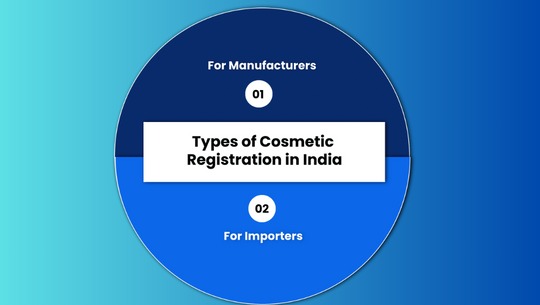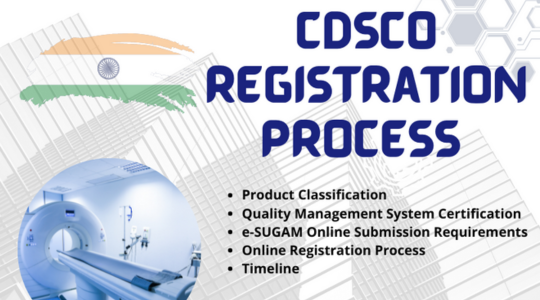Cosmetic Regulations and Licensing
Welcome to our comprehensive guide on Cosmetic Regulations and Licensing. Contact Satori OCS if you want to get a Cosmetic Manufacturing License. We specialize in supporting manufacturers and distributors of Cosmetics in negotiating the challenging environment of cosmetic licensing and regulatory compliances as a reputable consulting organization. Throughout the licensing procedure, we are here to offer professional advice and assistance whether you are bringing Makeup products, Fragrances, Skin care, Hair care, Personal care or any other cosmetics to the Global or Indian Market.
What are Cosmetics ?
Cosmetics are personal care products, available in a wide range for different purposes, and are used by people of all ages, genders, and skin types. They are applied to the body for aesthetic or functional purposes including improving self-esteem, expressing personal style, or preparing for a special occasion. They are used/ designed to improve/ enhance/ alter or maintain the appearance of the face, body, skin, hair, and nails, or to provide a specific cosmetic benefit such as sun protection/ protection from environmental factors, skin hydration, or anti-aging and enhance personal hygiene. They are typically applied topically (to the surface of the body), and are not intended to have a systemic effect.
How Cosmetics are Classified ?
Cosmetics can be classified based on various factors, including their purpose, formulation, and regulatory guidelines. The classifications may vary depending on regional regulations or industry standards.
Here are some common classifications:
This category includes products like foundation, lipstick, mascara, eyeshadow, blush, and other color cosmetics used to enhance or change the appearance of the face.
These products focus on improving the health and appearance of the skin. Examples include moisturizers, cleansers, toners, serums, masks, and anti-aging creams.
This category encompasses products used for cleaning, conditioning, styling, and treating hair. It includes shampoos, conditioners, hair masks, hair oils, styling gels, hairsprays, and hair dyes.
These products are used to add pleasant scents to the body or surroundings. Perfumes, colognes, body sprays, and scented lotions fall under this category.
This classification covers a wide range of products used for personal hygiene and grooming. It includes items like soaps, shower gels, deodorants, toothpaste, mouthwash, shaving creams, and body lotions.
List of Cosmetic Products
- After-bath Powders
- Anti-wrinkle Products
- Deodorant Soaps
- Deodorants and Antiperspirants
- Depilatories
- Emulsions/ Creams/ Lotions/ Oil & Gels for the Skin
- Face Masks
- Hair Colourants
- Hair Setting Products
- Hairdressing Products such as Lacquers, Lotions, Brilliantine
- Hygienic Powders
- Lips Product
- Make-up and Products removing Make-up
- Make-up Powders
- Mouth & Teeth Products
- Products for external intimate hygiene
- Products for waving, fixing hair, and straightening
- Shaving Products (Lotions, Creams, Foams)
- Shower and Bath preparations such as Salts, Foams, Oils, and Gels/
- Skin-whitening Products
- Sunbathing Products
- Tinted Bases (Pastes, Liquids, Powders)
- Toilet Soaps
- Toilet Water, Perfumes and eau de Cologne
Categories of Cosmetics as per Schedule M-II of the Drugs and Cosmetic Rules of 1945
- Powders
- Creams Lotions Emulsions Pastes Cleansing milks Shampoos Pomade Brilliantine Shaving creams and Hair-oils
- Nail Polishes and Nail Lacquers
- Lipsticks and Lip-gloss
- Depilatories
- Preparations used for Eyes
- Aerosol
- Alcoholic Fragrance Solutions
- Hair Dyes
- Tooth Powders and Toothpastes
- Toilet Soaps
Regulatory Authority for Cosmetic Licenses in India
In India, the requirements for cosmetic licenses are regulated by the Drugs and Cosmetics Act, 1940, and the Drugs and Cosmetics Rules, 1945.
The manufacture of cosmetics is governed by a system of inspection and licensing by the State Licensing Authorities (SLA) appointed by the State Governments under the Drugs and Cosmetics Act, 1940, and Rules made thereunder.
The import of cosmetic products is governed by a registration system by the Central Licensing Authority (CLA) appointed by the Central Government under the Drugs and Cosmetics Act, 1940, and Rules made thereunder.

Requirements for Cosmetic Manufacturing Licence in India
The following are some of the key requirements:
-
 Manufacturing Premises
Manufacturing Premises
The manufacturing premises must comply with certain standards, including adequate space, proper ventilation, sanitation facilities, and compliance with Good Manufacturing Practices (GMP) guidelines.
-
 Technical Staff
Technical Staff
The applicant must have qualified technical staff, including a qualified person in charge of manufacturing, who holds a degree or diploma in pharmacy or a related field.
-
 Formulation Details
Formulation Details
The applicant must provide detailed information about the formulation of each cosmetic product to be manufactured, including the ingredients used, their concentration, and the manufacturing process.
-
 Safety Assessment
Safety Assessment
The applicant must conduct a safety assessment of each cosmetic product to ensure that it is safe for use. This assessment should consider potential risks, such as skin irritation, allergies, or other adverse effects.
-
 Product Labeling
Product Labeling
The cosmetic products must comply with labeling requirements specified under the Drugs and Cosmetics Rules. This includes providing accurate and complete information about the product, its ingredients, and directions for use, precautions, and any specific warnings.
 Testing and Quality Control
Testing and Quality Control
The applicant must have a system in place for testing and quality control of the cosmetic products. This may include conducting tests for microbial contamination, stability, and other quality parameters.
 Licensing Application
Licensing Application
The applicant must submit a completed application form along with the required documents, such as a manufacturing plan, product formulations, safety assessment reports, and proof of compliance with GMP guidelines.
Documents Required for Cosmetic Manufacturing License in India
Obtaining a Cosmetic Manufacturing License in India requires submission of specific documents as part of the application process. While the exact requirements may vary depending on the State and Local Regulatory Authorities, here are the common documents typically needed:
A duly filled application form for the Cosmetic Manufacturing License provided by the State Drug Regulatory Authority.
A covering letter addressed to the concerned authority, introducing the applicant and providing a brief overview of the manufacturing facility and the proposed cosmetic products.
Documents confirming the legal status of the manufacturing entity, such as a Certificate of Incorporation or Partnership Deed, depending on the business structure.
A detailed site plan and layout of the manufacturing facility, indicating the location of various production areas, storage spaces, and quality control laboratories.
Documents establishing the ownership of the manufacturing premises or a valid lease agreement in case of rented property.
A detailed description of the manufacturing process, including the equipment used and the Standard Operating Procedures (SOPs) followed.
A comprehensive list of all machinery and equipment used in the manufacturing process, along with details of their technical specifications and calibration certificates.
Complete formulation details of all the cosmetic products intended to be manufactured, including the list of ingredients used and their respective quantities.
Documentation outlining the quality control measures and testing protocols to ensure the safety and quality of the cosmetic products.
If available, a Good Manufacturing Practices (GMP) certificate issued by a recognized certifying agency, indicating compliance with quality standards.
An affidavit declaring that the manufacturing facility adheres to the prescribed standards and will comply with all the rules and regulations.
Proof of payment of the requisite application and license fees.
Procedure for Obtaining Cosmetic Manufacturing License
- Filling the Application
To begin the process of obtaining a Cosmetic Manufacturing License, you must first file an application in Form COS-5. Our team of experts will assist you in efficiently filling and drafting the application on your behalf, ensuring a hassle-free experience. - Document Submission
After completing the application, you will need to submit all the essential documents to us via email. Our team will then organize and compile the necessary documents along with the application form, and submit them to the appropriate regulatory authority. - Application Examination
Once we have submitted the application and accompanying documents to the respective regulatory authority, they will conduct a thorough examination of the provided information. - License Issuance
Upon satisfactory review of the application and documents, the Licensing Authority will proceed to issue the Cosmetic Manufacturing License in Form COS-8.
Get CDSCO Cosmetic Import Registration
Welcome to Satori OCS, your one-stop solution for obtaining CDSCO Cosmetic Import Registration in India. If you are planning to import cosmetics into the Indian market, compliance with the regulatory requirements laid down by the Central Drugs Standard Control Organization (CDSCO) is essential. Our team of regulatory experts is well-versed with the CDSCO guidelines and procedures, and we are dedicated to helping you navigate the import registration process smoothly and efficiently. From preparing and submitting the application to compiling the necessary documents, we help you ensure that your cosmetic products meet the required safety and quality standards, facilitating a seamless entry into the Indian market. Partner with us for a hassle-free and CDSCO compliant Cosmetic Import Registration process.

Procedure for getting Health Canada Approval for a Cosmetic Product
The regulatory body responsible for overseeing the approval of cosmetic products in Canada is Health Canada. The following is a general overview of the steps involved in getting approval for a cosmetic product in Canada:
The manufacturer or importer of the cosmetic product must submit a Cosmetic Notification Form (CNF) to Health Canada before the product can be sold in Canada. This can be done online through Health Canada's Cosmetic Notification System (CNS). The CNF provides detailed information about the product, including its intended use, ingredients, packaging, labeling, and any supporting data or research.
Health Canada will assess the safety of cosmetic products by reviewing the information provided in the CNF and any other available safety data. This assessment includes an evaluation of the product's formulation, ingredients and their concentrations, as well as any potential health risks/ concerns associated with their use.
All cosmetic products sold in Canada must comply with specific labeling requirements. The label must include the product's name, the name and address of the manufacturer or importer, the net quantity of the product, and a list of ingredients in descending order of concentration.
Health Canada also reviews the advertising and promotional materials for cosmetic products to ensure that they are truthful, not misleading, and comply with Canadian regulations.
The manufacturer or importer of the cosmetic product must also follow Good Manufacturing Practices (GMP) to ensure that the product is manufactured and packaged under conditions that ensure its safety, quality, and effectiveness.
Health Canada monitors the safety of cosmetic products that are sold in Canada and takes action if any safety concerns arise. Manufacturers and importers must report any serious adverse reactions to Health Canada.
If your product is found to be safe for use, Health Canada will issue an approval number. You will need to include this number on the product label.
Once your cosmetic product is approved, you are responsible for ensuring ongoing compliance with Health Canada's regulations. This may include regular reporting, label updates, and post-market monitoring.
For more information or to initiate the process of obtaining and ensuring that you meet all the requirements and regulations for your Cosmetic Manufacturing Licence or Import License in India or in Canada or other countries, feel free to book a complimentary consultation with our experts. We are here to guide you every step of the way and ensure a successful licensing journey.
FAQs
Q1. What is the licensing or approval process for cosmetics in different countries?

The licensing or approva process for cosmetics varies widely. Some countries require pre-market approvals, safety assessments, or notification to regulatory authorities, while others have minimal requirements.
Q2. Are there international standards for cosmetics?

International organizations such as the Codex Alimentarius Commission and the International Organization for Standardization (ISO) provide guidelines and standards for cosmetics. However, compliance with these standards is typically voluntary.
Q3. What are the consequences of non-compliance with cosmetic regulations?

Non-compliance with cosmetic regulations can result in various consequences, including product recalls, fines, legal actions, and market access issues. Non-compliant products may be pulled from the market.
Contact Us




